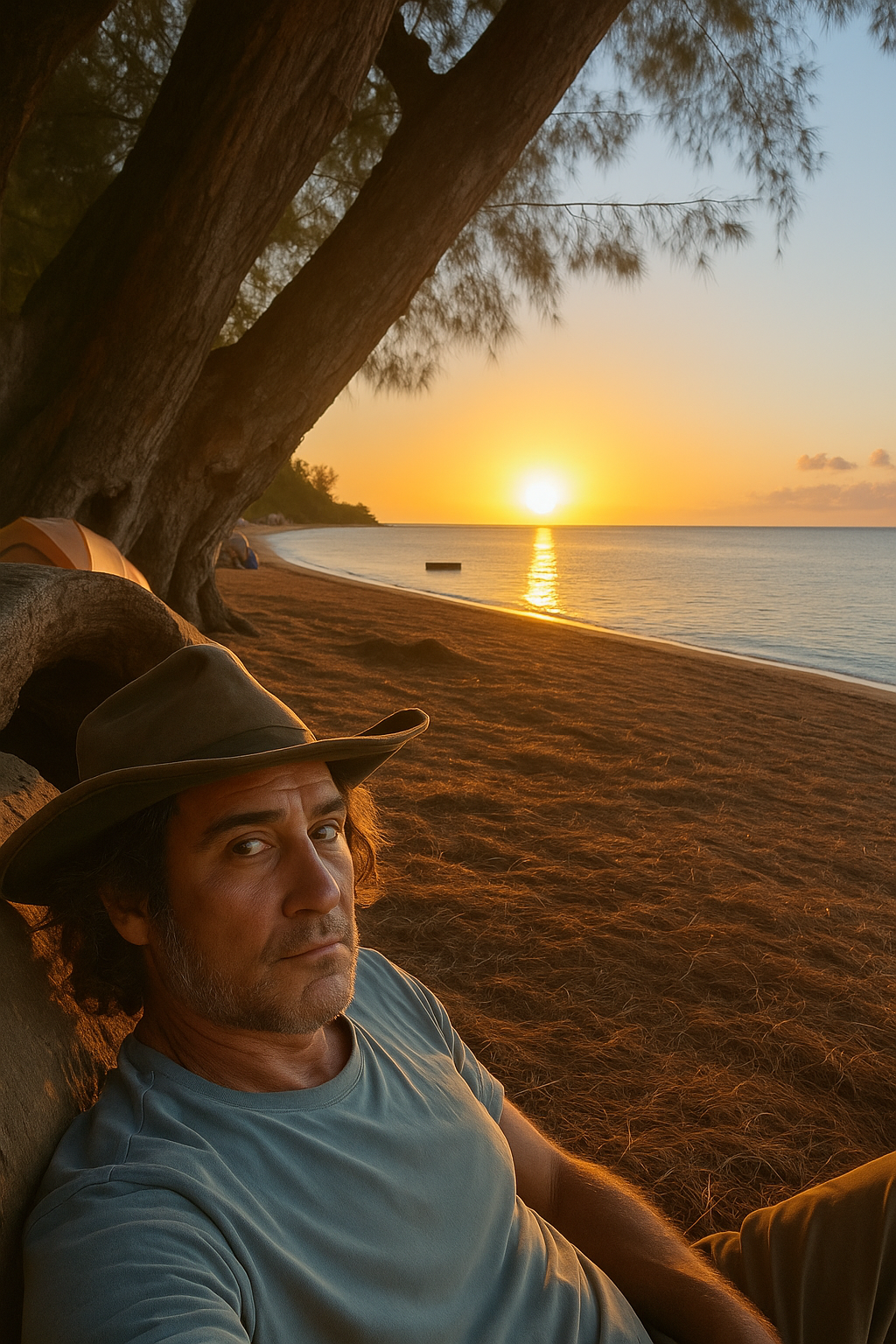Homelessness is a feeling, not a place. It’s the rotten peach at the core of the American experiment—disgust, disappointment, a sag in the chest that never quite goes away. You might pull yourself up, comb your hair, fake a smile for the bread aisle, but it’s there. The salt of it stains the skin. Society smells it on you before you speak. No house, no mailbox, no receipts—just the weight of everything you never had and probably never will.
This, they say, is what needs to be fixed. But the fix isn’t a fix at all—it’s a steel box with new hinges. The administration talks help, but help comes with a badge and a clipboard and “Are you a danger to yourself or others?” scrawled in permanent marker. The ones living feral, the ones with sand in their hair and kids playing tag with chickens and the shoreline—they’re the ones marked for rescue. Rescue, in this context, is just another word for relocation.
The children of the beach aren’t broken; they’re learning the real curriculum—stranger danger is a myth peddled by people who never had to survive outside their own garden walls. You want to worry about the feral children? Worry about the feral adults first—worry about the ones whose souls were vacuumed out by strip malls, mortgages, the gnawing, slow acid of “keeping up.” The beach children are tribal, fluid, breastfed by aunties, toughened by reef cuts, taught by the wind. Community here is an ecosystem, not a grid of fences.
But then, here comes Karen, clutching her HOA newsletter in one hand and Instagram in the other. She sips coffee, judges the horizon, calls the cops when the ocean’s music drifts past the line of hibiscus hedges. She worries about her view—her right to a clean, uninterrupted postcard. The tents offend her, the children make her nervous, the freedom feels like a personal slight.
Fuck you, Karen. But not really. Karen is just scared of what she doesn’t understand. She’s lost in the algorithm of concern, a feedback loop of Nextdoor posts and gated fear. She wants to help. She wants to heal. She wants everyone to have a couch and a refrigerator with a working ice maker. But her help is a leash disguised as a lanyard—community meetings, task forces, therapy-by-force. All the king’s horses, all the king’s men, can’t turn a beach home into a living room without tearing out the soul.
Meanwhile, a two-bedroom on Kauaʻi costs more than a mainland mansion, and the ocean is nowhere in sight. You want to talk about dysfunction? Start with the food system—poisoned, imported, peeled and shrink-wrapped. The housing market—overdrawn, exclusionary, manic. The job market—a parade of bills, bosses, and burnt coffee. The whole thing’s a shell game, a riddle with the punchline missing.
And yet the people on the beach have the view. The scent. The pulse. They wake up to dolphins instead of traffic, cook rice on driftwood fires, share what little they have without shame. No rent, no mortgages, no phantom equity. No gilded cages. Just salt air and the company of those who haven’t forgotten how to survive.
It’s easier to be here than to chase the mirage of “having.” The cost of living is a farce—shouldn’t we be paid to stand guard at the edge of the world, to witness the sunrise, to keep the ocean company as civilization steams off to market? Instead, we get called vagrants, outlaws, lazy, unfit.
What if the robots come, as they surely will? What if the gardens are planted by code, the fruit harvested by drones, the animals managed by algorithms, the horses trained by VR goggles? What’s left for the human animal, but the art of being?
Maybe the ones who live outside the walls are the only ones left who remember how to live. Maybe the real dysfunction is inside the grid, where freedom is a number on a spreadsheet and connection is a subscription plan. Maybe the revolution is a tent and a fire and a tribe that doesn’t need permission.
So, Karen, before you call the authorities, before you commission another mural or sponsor another soup kitchen, write this haiku in your journal:
Careful who you save—
the sea gives and takes in waves
worry drowns the brave.
The future is written by the ones who refuse to live in cages, who choose feral over sterile, communion over consumption, reality over the illusion of safety. The beachfront people are the frontline. They know what the land needs, what the spirit craves, what freedom smells like at sunrise.
Don’t pity them. Don’t fix them. Don’t legislate their existence away. Maybe—just maybe—learn from them, before the last sand is swept up and sold.

Join the Conversation 💬